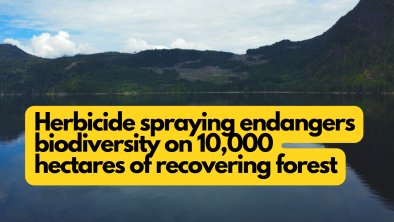Environmental groups want pesticide makers to release bee-death studies
The Province

OTTAWA — Four major environmental groups are demanding that Ottawa force pesticide makers to provide scientific studies looking at whether their products are killing off bees.
Health Canada’s Pest Management Regulatory Agency has been asking registered pesticide manufacturers for the studies since 2004.
But despite several notices, the studies haven’t been produced, while the pesticides in question continue to be manufactured and sold.
Beekeepers, meanwhile, are growing ever more alarmed as their bees continue to die off.
It’s a serious issue for Canada’s multi-billion dollar agricultural industry, since bees pollinate a wide variety of crops.
John Bennett of Sierra Club Canada Foundation says the government needs to listen to beekeepers who are suggesting so-called neonicotinoid pesticides are toxic to bees.
“It’s the beekeepers who are supplying the evidence (of toxicity),” Bennett told an Ottawa news conference Wednesday.
“But their dead bees are being ignored.”
Health Canada issued a report in September indicating that detectable residues of neonicotinoid insecticides used to treat corn and soybean seeds were found in large numbers of dead bee samples taken in 2013.
“Residues of neonicotinoid insecticides were detected in samples from approximately 80 per cent of the beekeepers for which samples have been analyzed.”
Sierra Club, the David Suzuki Foundation, Equiterre and the Wilderness Committee have sent a letter to Health Minister Rona Ambrose, calling on her to take action.
They say pesticide makers should not be allowed to sell their products until the studies are provided.
In November, Ambrose said her department didn’t expect to receive the required pesticide studies until 2015 at the earliest.
Most of the bees that are dying have been found in Ontario and Quebec.
The Ontario Beekeepers Association last week rejected the final report from a bee health working group, which promoted the use of non-insecticide treated seeds, but also concluded that neonicotinoids could be safe for bees if applied properly at planting time.
“As a bee-keeper and farmer, I have seen the devastation caused by the indiscriminate use of this pesticide,” said association president Dan Davidson.
“This report does not reflect the magnitude of the threat to bee health in Ontario.”
Ontario Premier Kathleen Wynne said her province is looking to Health Canada for evidence-based direction on a national approach to neonicotinoid use.
This Canadian Press article also appeared in CTV News and the Epoch Times.
Photo: Bumblebee with Lavender. Gene Simmons via Flickr.


